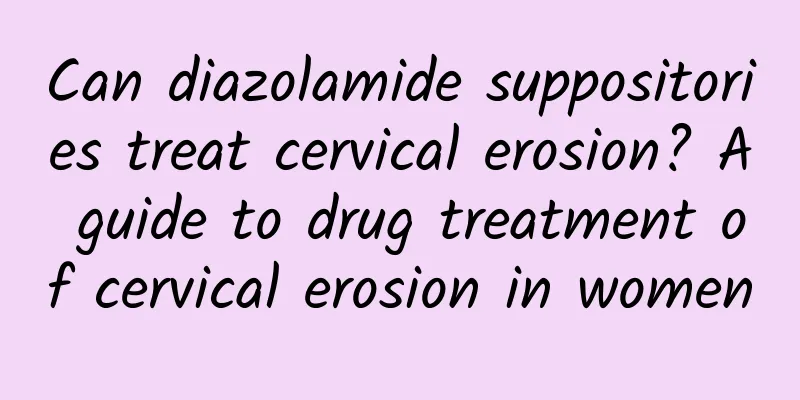Are there any sequelae of uterine fibroids?

|
Uterine fibroids may cause sequelae such as irregular menstruation, infertility, anemia, etc. In severe cases, it may affect the quality of life or cause other health problems. The manifestation of specific sequelae is related to the size, location and growth of the fibroids. Early detection and early treatment are the key to preventing sequelae. 1. Abnormal menstruation and anemia The most common sequelae of uterine fibroids is abnormal menstruation, including increased menstrual flow, prolonged menstruation, or menstrual cycle disorders. Long-term excessive menstruation may lead to iron deficiency anemia, manifested as fatigue, dizziness, pale complexion and other symptoms. In this regard, fibroids should be treated actively. For example, drug treatment can use hormone drugs such as gonadotropin-releasing hormone agonists, and surgical treatment can choose uterine fibroid removal or hysterectomy. If the symptoms are mild, iron can also be supplemented through diet, such as eating more iron-rich foods such as animal liver and spinach. 2. Increased risk of infertility or miscarriage Uterine fibroids may compress the uterine cavity, interfere with the implantation of the fertilized egg, and even cause infertility. If the fibroids are located in the submucosal layer, the risk of miscarriage will increase accordingly. If infertility or miscarriage is caused by fibroids, hysteroscopic surgery can be chosen to remove the submucosal fibroids. In addition, in vitro fertilization IVF technology can also be used as an assisted reproductive method to help pregnancy. 3. Compression symptoms Larger fibroids may compress nearby organs, causing back pain, frequent urination, difficulty urinating, or constipation. If the compression symptoms are severe, surgical treatment may be considered, such as laparoscopic or open surgery to remove the fibroids. Maintaining good bowel and bladder health habits in daily life can also help relieve symptoms. 4. Risk of tissue lesions Although most uterine fibroids are benign, they may undergo malignant transformation in rare cases, accounting for less than 0.5%. If the fibroids suddenly grow too fast or are accompanied by severe pain, you should be alert to the condition and seek medical attention immediately. The doctor may recommend magnetic resonance imaging (MRI) or biopsy to confirm the diagnosis. To avoid the sequelae of uterine fibroids, it is necessary to have regular gynecological examinations, pay attention to changes in menstrual patterns, and seek timely treatment if abnormalities are found. Comprehensive response measures can reduce the discomfort caused by uterine fibroids and improve the quality of life. |
<<: What are the symptoms of left ovarian cyst
>>: How long does it take for threatened miscarriage to occur?
Recommend
What are the symptoms of miscarriage?
All female friends who have been pregnant know th...
What are the common symptoms of cervical erosion?
Cervical erosion brings a lot of harm to our live...
What should I pay attention to when I have vaginitis?
Female vaginitis is a common gynecological diseas...
People with three highs should prevent chronic fatigue, be careful not to die of exhaustion! Nutritionist Zeng Miaoru: Eat the 6 stress-relieving foods to get rid of fatigue
Office workers are busy with work and eat out all...
What medicine should I take for cervical erosion and leucorrhea?
According to the survey and statistics of gynecol...
Experts remind: Common hazards of moderate cervical erosion
Moderate cervical erosion is a gynecological dise...
How much does it cost to perform an abortion?
With the liberalization of sex life, more and mor...
How to perform surgery for ectopic pregnancy
Ectopic pregnancy is a type of ectopic pregnancy....
Nursing plan for cervical precancerous lesions
What are the health care methods for cervical pre...
Can I drink soy milk if I have irregular menstruation?
Drinking soy milk may help when you have irregula...
Specific symptoms of hyperprolactinemia
At present, the number of people suffering from h...
What are the precautions for multiple uterine fibroids?
What are the precautions for multiple uterine fib...
Prevent muscle loss and a decrease in immunity! Should I eat more meat to gain muscle? Doctors urge: Don’t step into the protein trap
Dietary restrictions and unbalanced nutrition dur...
Is it good to do minimally invasive surgery for cervical erosion?
Yes, cervical erosion is a normal physiological p...
NG weight loss can easily lead to aging. 6 foods you must eat to lose weight and fight aging
After finally successfully getting rid of excess ...









